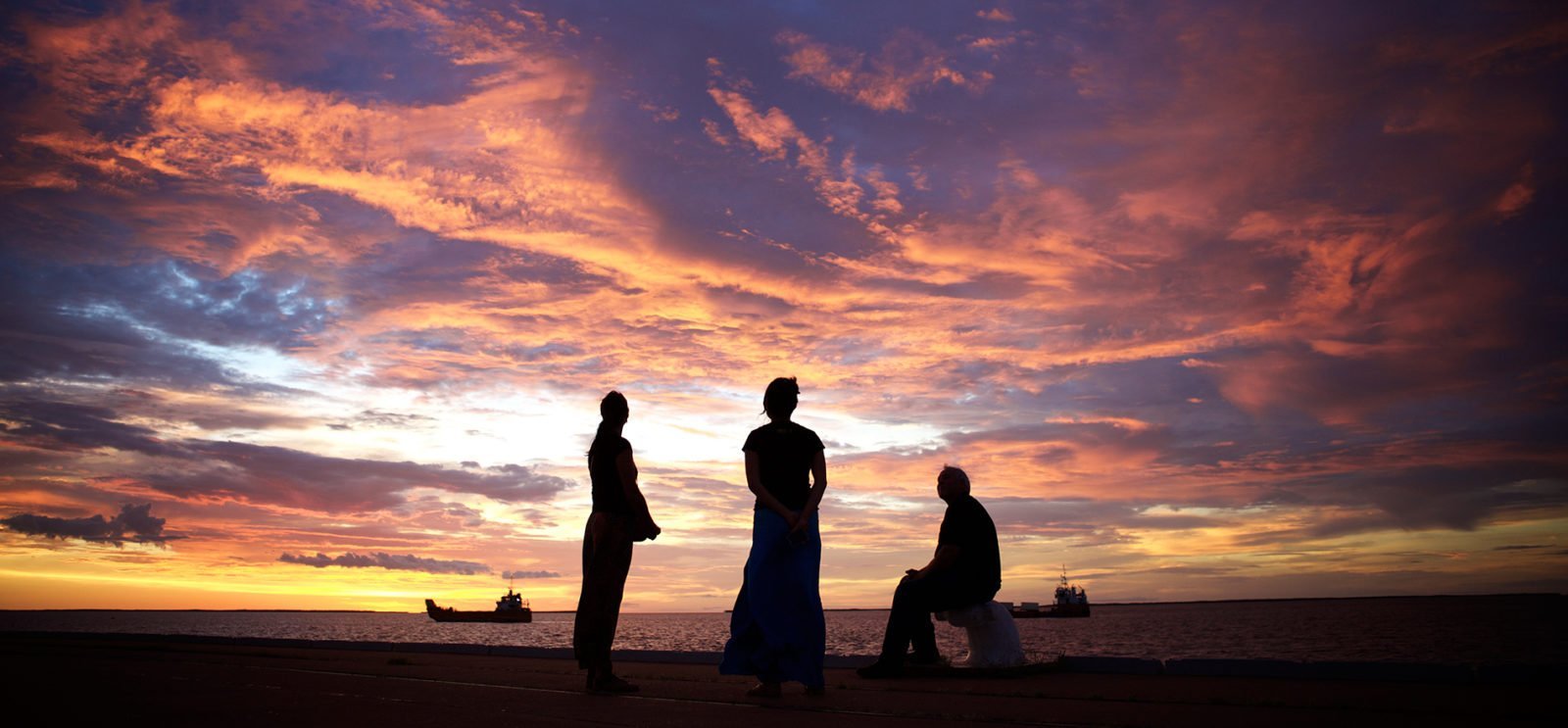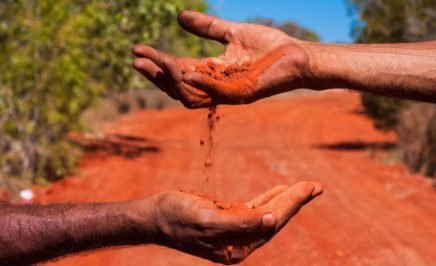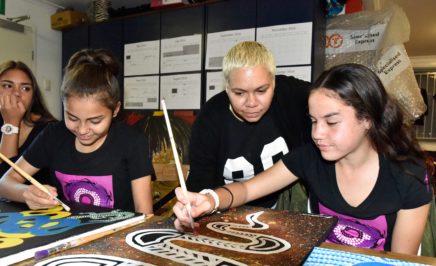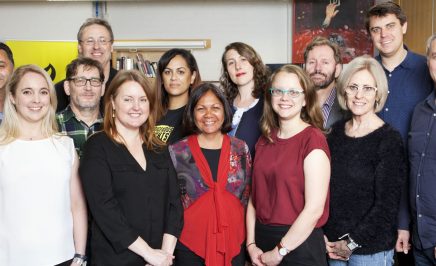Why is community so important for Indigenous kids?
Meet Sarah*, from the Kimberley. She attributes her bright future to strong cultural and community connections while growing up.
Sarah’s story
Sarah is employed at a local Aboriginal organisation in the Kimberley and is planning to start her own business. She attributes her promising future to her involvement as a teenager with the Yiriman Project, a program that connects kids to their culture.
Sarah’s future wasn’t always so bright. Her parents split when she was 10 and she spent some of her teenage years moving between the homes of various family members.
Sarah began to smoke and drink.
But while her cousins were committing crimes and getting into trouble with the law, Sarah was steered away from trouble by the Yiriman Project.
“When I went out there I took a step back and said, this is me, this is where family come from, my ancestors walked this land, so I sort of found myself. I find that a sense of belonging gives you a sense of respect.”
The Yiriman Project takes young people, accompanied by elders, on trips back to country to immerse them in the stories, songs and knowledge of their heritage.
When Sarah was 15, she went out bush with women Elders of the Yiriman Project to connect with her grandmother’s country. For a week she learned songs, dances and stories, and visited sacred women’s sites.
“When I went out there I took a step back and said, this is me, this is where family come from, my ancestors walked this land, so I sort of found myself. I find that a sense of belonging gives you a sense of respect.”
What is the Yiriman Project?
The Yiriman Project in Western Australia is an Indigenous-led cultural program for kids at risk of being caught in the justice system.
The Yiriman Project contributes to the healing of young people, provides an opportunity to develop and assert culture, language and bush skills, and creates meaningful employment that values and maintains culture.
There are great stories of success through the Yiriman Project. In 2009 at Fitzroy Crossing, 15 boys attend a diversionary program run Elders of the Yiriman Project. The camp involved traditional knowledge transfer, work and counseling.
One liaison officer said that many of the boys struggled at first with the routine and discipline; however all the boys completed the camp. All 15 families reported positive changes in their child, and 12 months later none of the boys had re-offended.
All 15 families reported positive changes in their child, and 12 months later none of the boys had re-offended.
The Yiriman Project was featured in the recent Australian Productivity Commission Overcoming Indigenous Disadvantage Report 2014 under ‘Things that work’. The report stated that the program “builds young people’s confidence and improves their self-worth, and is considered to have helped curb suicide, self-harm and substance abuse in the participating communities.”
The organisation also won the 2012 Reconciliation Australia Indigenous Governance Award.
Why we need the Yiriman Project
All too often, brilliant community-led programs like the Yiriman Project go unsupported. Instead we hear more and more stories of Indigenous kids in detention – some are as young as 10 years old. Indigenous kids in Australia are 24 times more likely to be locked up than their non-Indigenous classmates – often because there are no other options available.
All over Australia the communities are different – they are urban, they are regional, they are remote – but what they have in common is that Indigenous leaders and community members know the way forward for their children.
Positive signs
Since interviewing Sarah, the Western Australian Government has announced $440,000 over two years for the Yiriman Project. This is a great step – the Yiriman Project has never received any WA Government funding.
Now we need to push for a comprehensive and long-term solution, and more community-led programs, like Yiriman, for Indigenous kids all across Australia.
*name has been changed.




